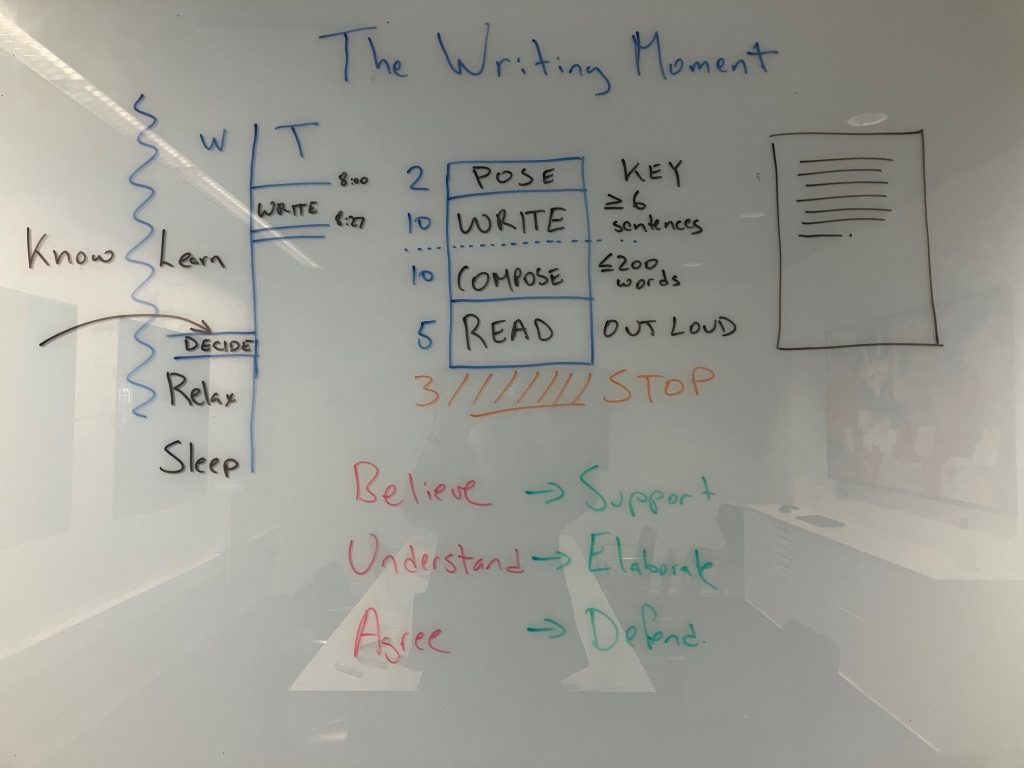(Part of the Art of Learning series.)
Video from November 12, 2025
Scholarly writing is the art of writing down what you know for the purpose of discussing it with other knowledgeable people. In a university setting, you don’t truly know something if you can’t write a coherent prose paragraph about it in under half an hour. If you develop this ability as part of your day-to-day learning process you will not regret the effort. In this talk, I present an approach to academic writing and a way to train yourself to reliably produce clear prose about things you know. The trick is to master the “writing moment.”

During the Q&A for this talk, I was reminded that I had left out a detail about the decision you make the day before you write: choose something you knew well already last week. (Knowledge is the past of learning.) It can be very useful to you to get into the habit of writing about things that you haven’t just learned. This makes it more likely that you are, in fact, writing about something you know. And it also means that your relation to the text will be the same when you’re writing as when you talk about a few weeks later (for example when you are taking an oral exam.) Your ideas will become familiar too you, “prosaic,” if you will.
Writing makes our knowledge explicit by drawing on our ability to think and talk about the things we believe to be true. These beliefs contain propositions (which, as thoughtful people, we acknowledge may be false) that combine concepts and objects (see “How to Think”). We are able to write about them because we are “conversant” about their subject matter, that is, we’re able to hold our own in conversation with other knowledgeable people about them (see “How to Talk”). The challenge is to train ourselves in the art of selecting something to write about (constructing a key sentence) and the art of composing paragraphs (one moment at a time).
“The dignity of the movement of an iceberg lies in only one eighth of it being above water,” said Ernest Hemingway. “To know whom to write for is to know how to write,” said Virginia Woolf. (For more, see “The Patron and the Iceberg”.)
***
This talk focused on the composition of individual paragraphs. If you want to learn how to put them together into longer papers and projects, please see my talk in the Craft of Research series, “How to Structure a Research Paper.”
Training requires discipline and I once wrote a post that outlines “seven little disciplines” you can work on if you want to master the prose paragraph.
The core discipline is covered in detail in two posts about “composing the moment” (part 1, part 2).
You can also read about my approach in my essay “How to Write at University” (PDF), which is also available in Danish (PDF).
And here are few other posts that might interest you: “How to Write Prose”, “How to Write a Paragraph”, “Writing as Experience”